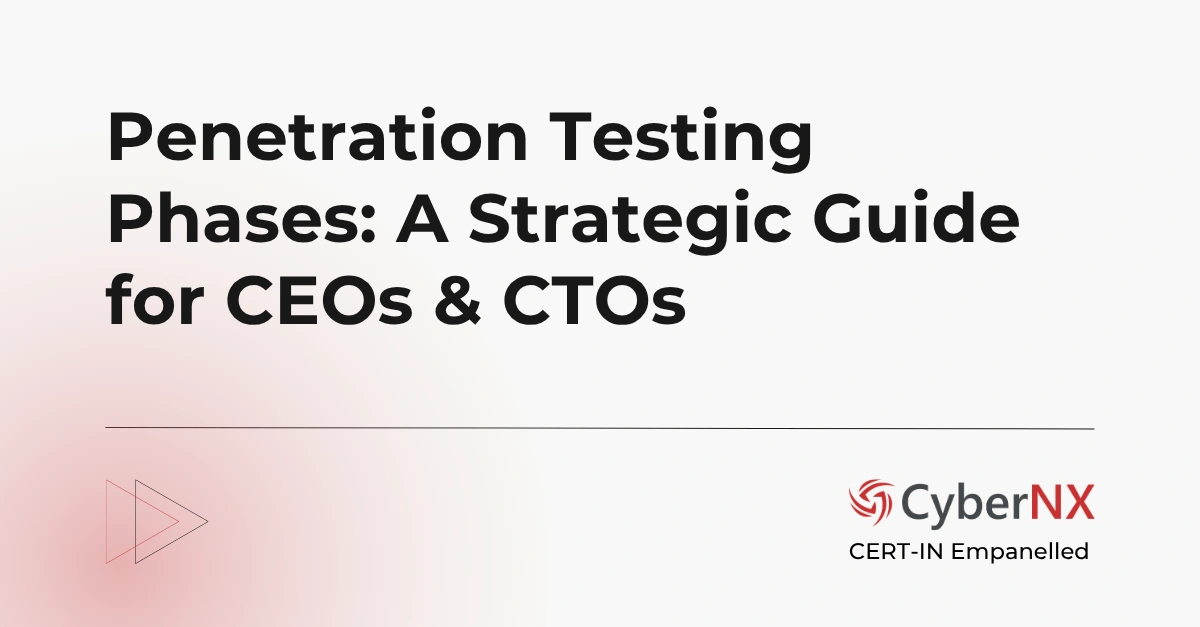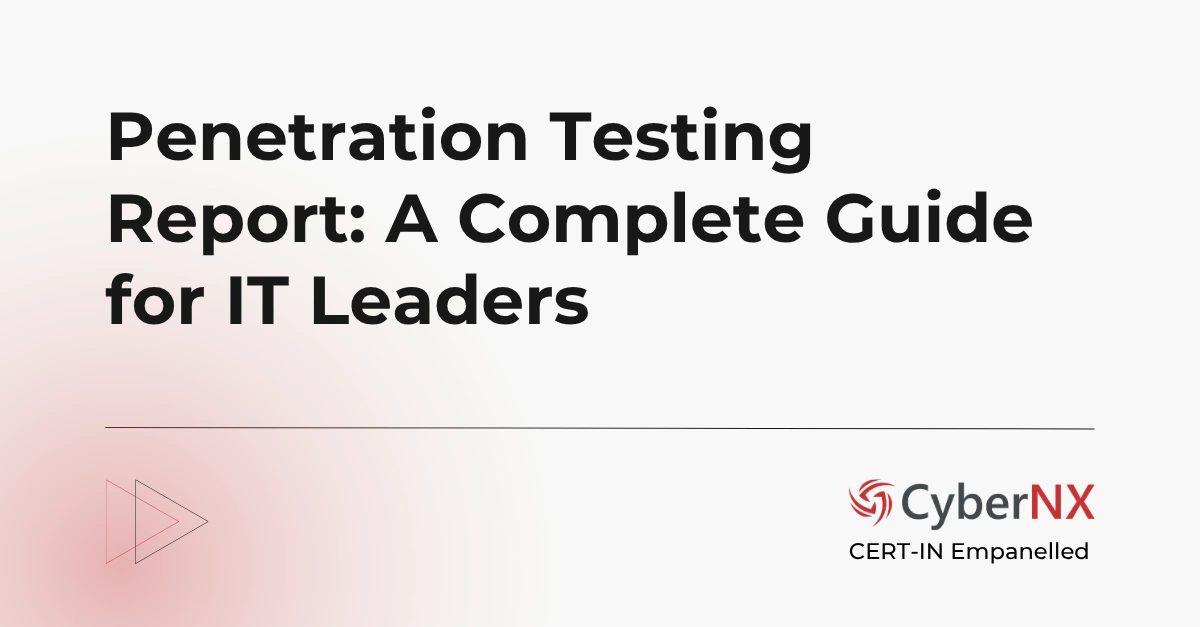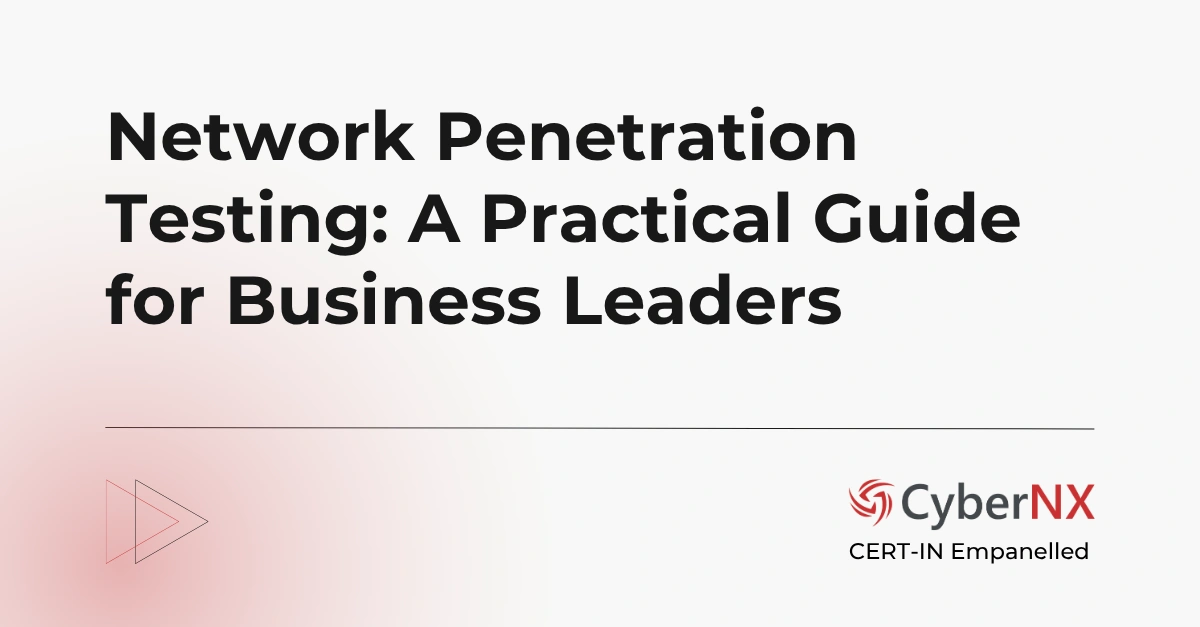Last year, the US organizations reported 800,000+ cybersecurity complaints and reported losses of over 16 billion dollars in losses, per the FBI’s Internet Crime Complaint Center. The average cost of a data breach in the U.S. reached 4 million dollars.
Numbers are staggering, and they proclaim an undisputed fact that businesses need to partner with penetration testing companies in USA. Someone who has got experience, expertise and whole lot of capabilities to fight the modern and sophisticated threats.
This blog lists top 5 penetration testing companies in USA.
Why US Businesses Should Stay Secure and Compliant?
The United States has various regulations like PCI DSS, HIPAA, NIST and CMMC. All of these requires businesses to conduct periodic vulnerability assessments and penetration testing. The goal is to protect sensitive user data, boost digital trust and prevent critical system exploitation.
What does failure to comply with these regulations lead to?
- Financial penalties
- Lawsuits
- Contract terminations, and
- Reputational loss.
Penetration testing companies in USA not only supports compliance but also helps organizations assess their actual security posture by simulating real-world attacks.
So, Which are the Leading Penetration Testing Companies in USA?
1. CyberNX
CyberNX meets the cybersecurity needs with comprehensive, tailored penetration testing services to modern U.S. based businesses. Penetration testing services cover:
- Web Apps
- Mobile Apps
- Cloud
- APIs
- Social Engineering
- Network
- IoT & more
The expertise also lies in regulatory compliance, contextual threat modelling, and continuous improvement approach.
Do you want to know more about above penetration testing types? Read our blog Types of Penetration testing: A complete overview
What Makes CyberNX Stand Out?
What makes CyberNX stand out is its commitment to delivering reliable, end-to-end cybersecurity services backed by industry best practices. Find out more below:
a. Customized Testing Engagements
CyberNX tailors every pen test to the client’s business needs, industry risk profile and digital infrastructure. From APIs to mobile apps and IoT to cloud environments, every facet is tested.
b. Certified Security Experts
The qualified team includes highly penetration testers with certifications such as OSCP, CISSP and others. Deep understanding of adversarial tactics enables them to uncover hidden, unknown vulnerabilities.
c. Compliance-Ready Assessments
Helps businesses align with regulatory standards. Testing reports are well-structured to support audit documentation and assist in board-level decision making.
d. Manual and Automated Testing Blend
By combining intelligent automation with deep manual testing, CyberNX promises higher accuracy and fewer false positives in vulnerability reports.
e. Clear, Actionable Reporting
Detailed, risk-prioritized findings along with remediation guidance are presented, ensuring that technical teams can act fast and executives can understand the business impact.
f. Affordable and Scalable
Startups and enterprises benefit from flexible pricing without compromising on quality or depth of services on offer.
2. Rapid7 – Broad Cybersecurity Expertise
Rapid7 is a recognized cybersecurity provider known for its vulnerability management tools and automated testing solutions, including InsightAppSec and Metasploit. The company primarily caters to large enterprises with complex security environments.
3. Trustwave – Enterprise-Grade Managed Security
Trustwave delivers managed security services, including penetration testing and threat detection, for large-scale organizations. The company is well-suited for highly regulated industries such as finance and healthcare.
4. Synack – Crowdsourced Security Testing
Synack leverages a global network of vetted ethical hackers to deliver penetration testing as a managed service. The company’s crowdsourced approach allows for rapid vulnerability discovery and coverage across various platforms.
5. Coalfire – Compliance-Centric Testing
Coalfire is a prominent name in compliance-focused cybersecurity services. The firm specializes in conducting penetration tests that help businesses meet regulatory requirements such as FedRAMP, PCI, and HIPAA.
Choose a Partner That Understands Security and Business
With rising cyber threats and expanding compliance mandates, choosing the right penetration testing company in USA is a business-critical decision.
Our experts deliver the perfect balance of technical depth, regulatory awareness and tailored pen test service delivery to meet the needs of modern US businesses. To learn more about the full range of security services, schedule a free consultation.
FAQs
How often should US-based businesses do pentesting for compliance and security purpose?
The pentesting frequency will depend on industry regulations, data sensitivity and how often your systems undergo change. For example, PCI DSS mandates annual pentesting and after any big infra or app changes you make. However, the best practices would be to test at least quarterly or adopt continuous pentesting. This ensures that vulnerabilities introduced through updates, third-party integrations or configuration drift are found.
Which U.S. regulations require pentesting for compliance?
Many U.S. regulatory frameworks either require or strongly recommend penetration testing. PCI DSS for businesses handling credit card data requires annual testing and after system changes. HIPAA for healthcare organizations recommends regular testing as part of its security rule. The CMMC (Cybersecurity Maturity Model Certification) for defense contractors mandates security assessments including pentesting for certain levels. Then, there are State-specific data protection laws such as the California Consumer Privacy Act (CCPA) which may not explicitly mandate testing but require reasonable security measures, for which pen tests are a good option.
How can U.S. companies evaluate the credibility of a pentesting vendor?
Your company should assess technical and operational credibility when selecting a penetration testing vendor. Look for pentesters with industry-recognized certifications such as OSCP, OSCE, or CISSP. Verify if the company follows recognized testing frameworks like OWASP, NIST SP 800-115 or MITRE ATT&CK. Ask for sample reports to evaluate clarity, depth and remediation guidance. Assess whether the vendor has experience in your industry and understands compliance needs relevant to your business.
What should U.S. businesses include in the scope of a penetration test to get maximum value?
U.S. businesses should focus the scope of a penetration test on assets that, if compromised, would cause the greatest operational, financial or regulatory harm. This often includes customer-facing web applications, employee access points, cloud environments, APIs and systems handling sensitive data. Prioritizing recently updated infrastructure, third-party integrations or remote access channels ensures the test reflects current risks. A tailored scope aligned with compliance needs—such as PCI DSS or HIPAA—helps translate findings into meaningful action and regulatory readiness.



